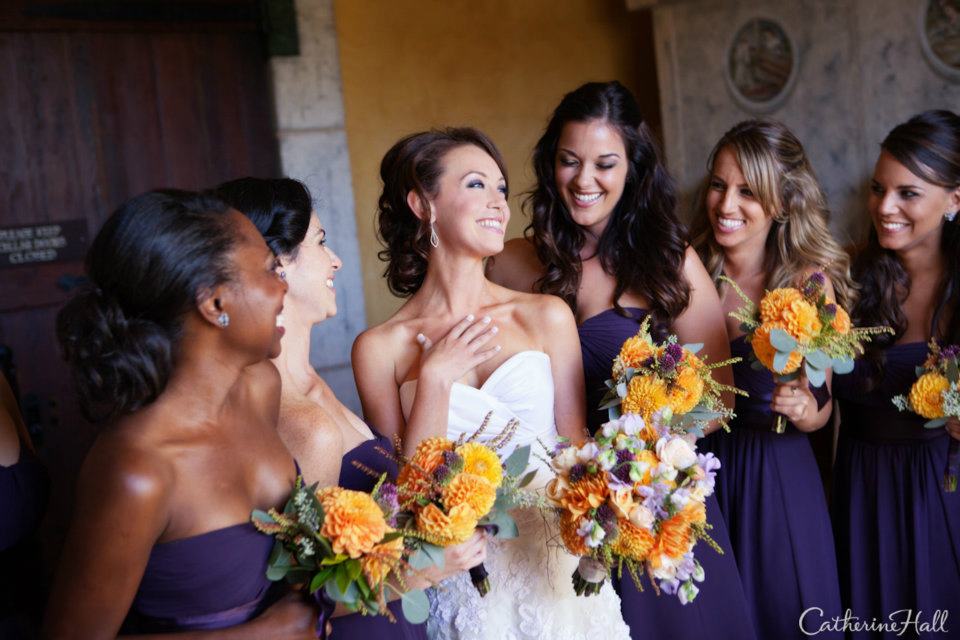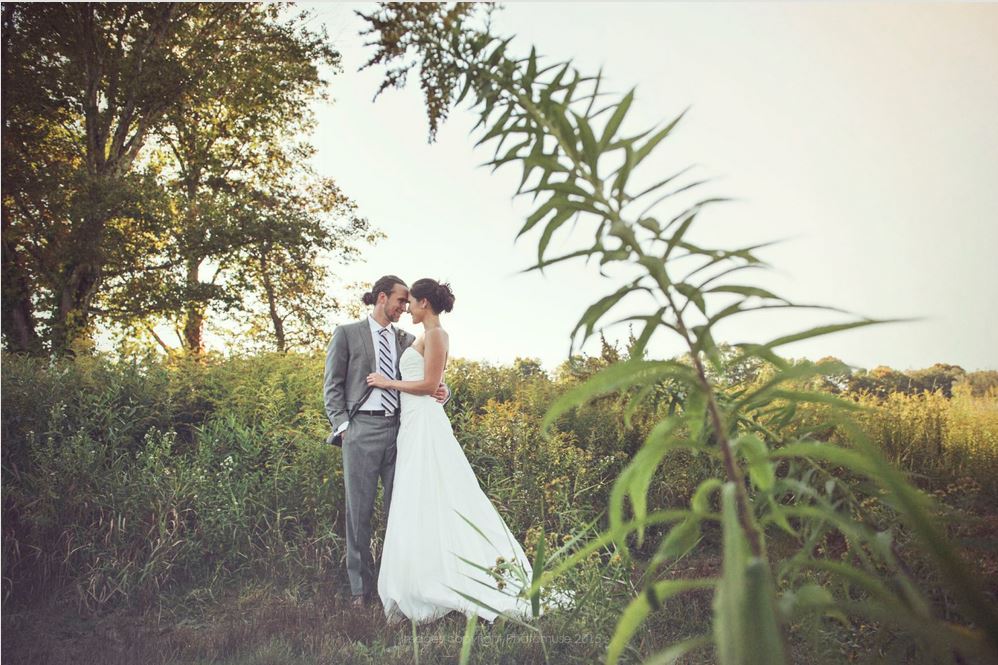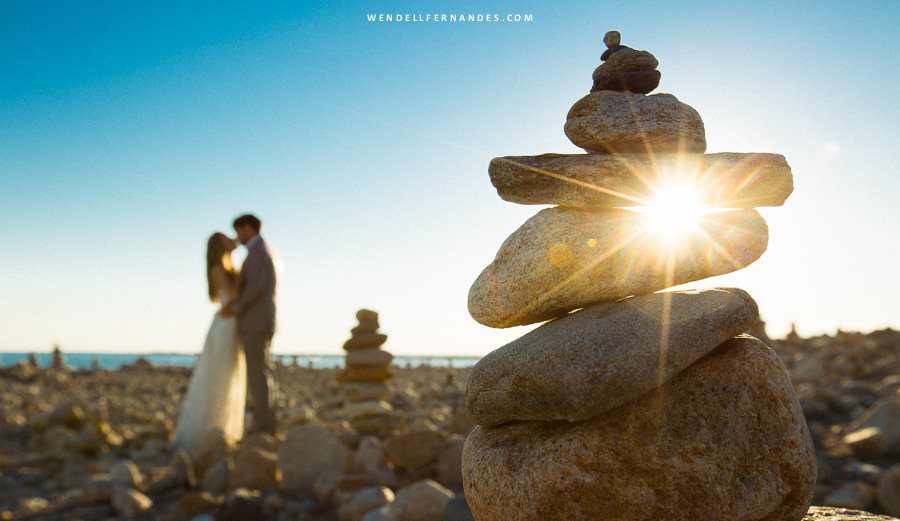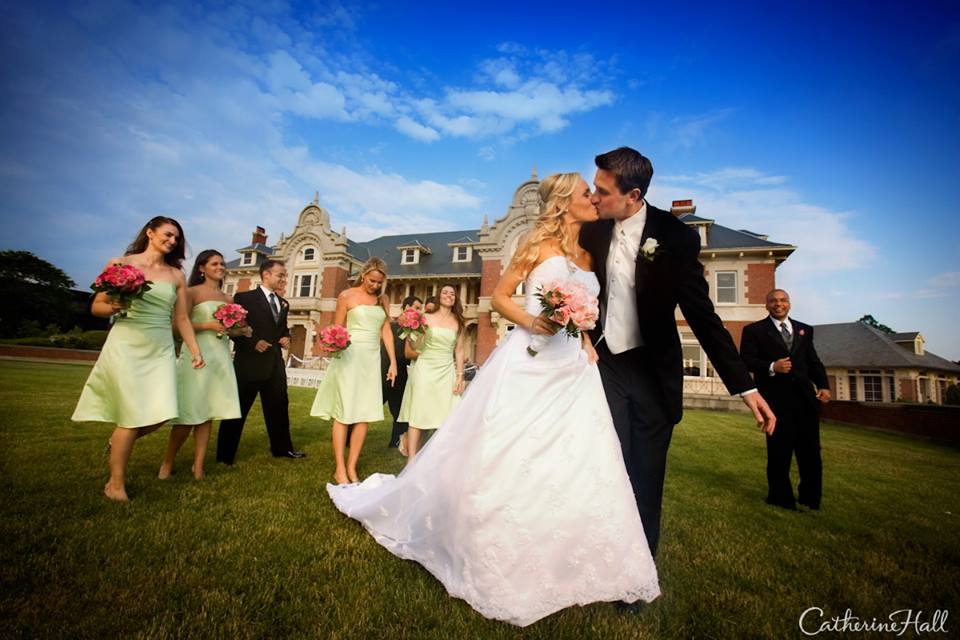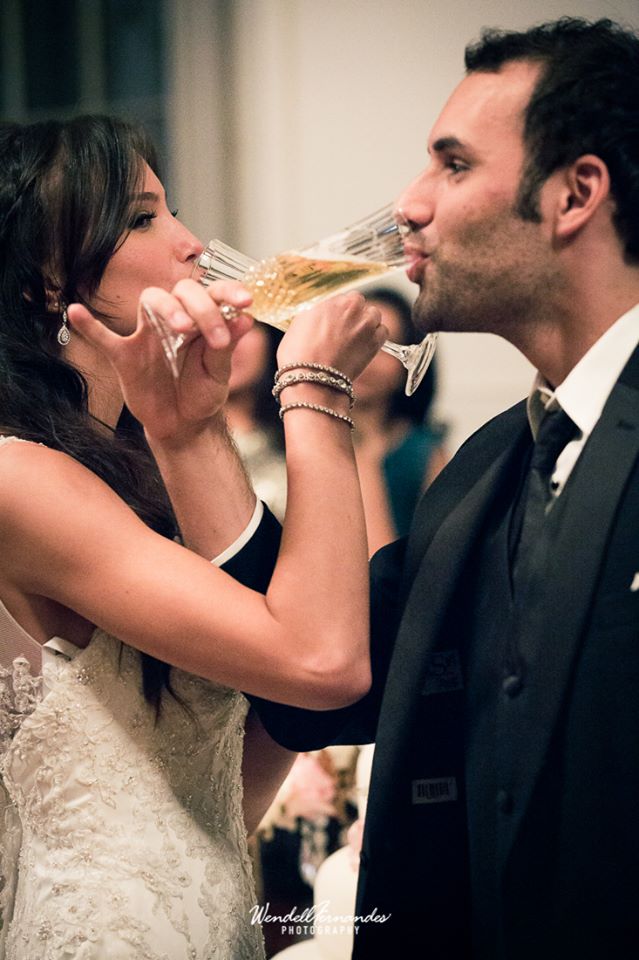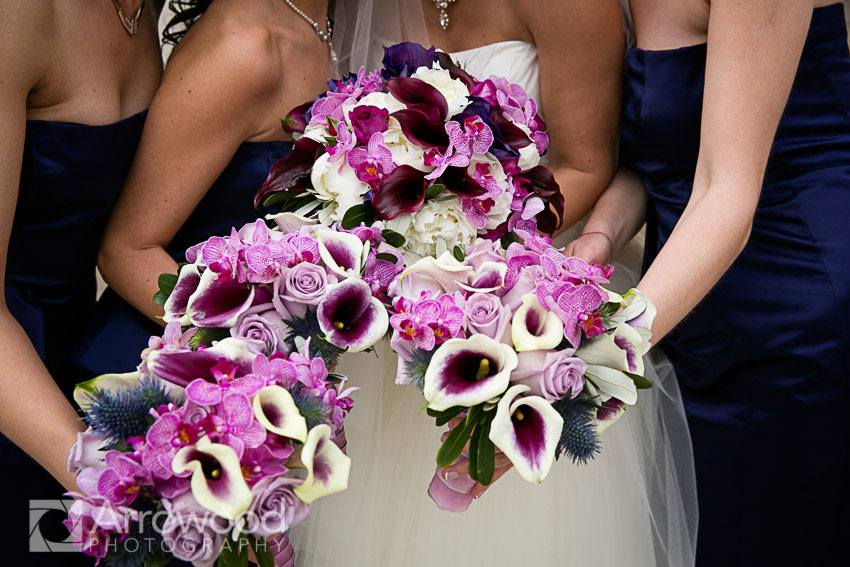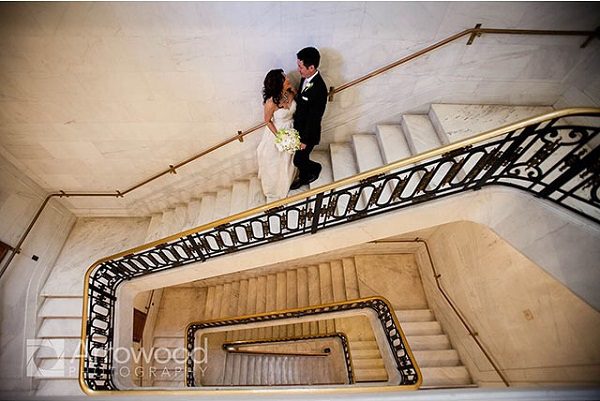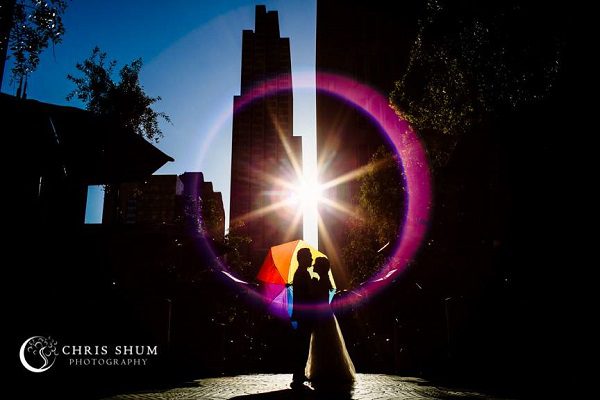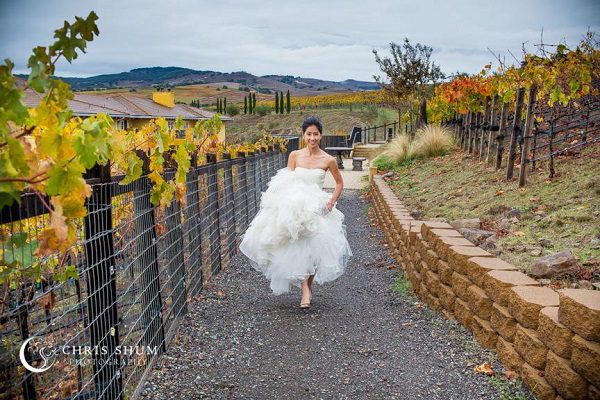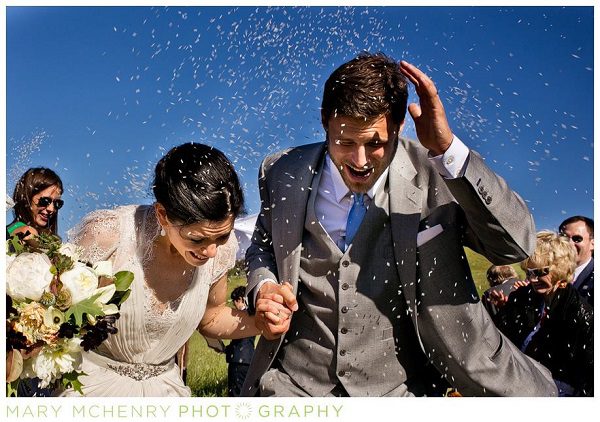Planning a wedding can be a daunting and overwhelming task. There are a lot of different things to consider and sort out and if not done properly, can cause anxiety and major stress issues for all parties involved. There are dreams waiting to be fulfilled, money that needs to be spent and two families uniting as one whilst trying to merge their differences and personalities. Organization of such an event involves more than just people and items. Every detail must be accounted for and there is usually humongous pressure and so little time to pull off the perfect wedding. It is this planner’s goal to ensure you are familiar with the key issues and terminology, as well as set a simple path to get the tasks done, so you can ultimately enjoy the process and wedding. After all, the wedding is all about the celebration of the two of you and your decision to be bound together as companions for life. But before we dive into the details of what you need to do and be aware of, here are three important things for you to remember:
- You deserve the wedding that works for you. Contrary to what you see in magazines and television, there are many other ways to get married.
- The wedding is about the two ofgett you. It’s a day to celebrate with family and friends. It’s your special day of exchanging wedding vows, and your decision to tie tinhe knot. Never forget this is the main reason for you going through the whole process.
- You should enjoy the whole wedding and not only the outcome.
| Styles & types of weddings | 2012 | 2014 | Change |
| Casual | 25% | 20% | -20% |
| Formal | 18% | 15% | -17% |
| Rustic | 13% | 17% | +31% |
| Traditional | 30% | 28% | -7% |
| Romantic | 38% | 41% | +8% |
Source: The Wedding Report Inc.
Photo Credit: Photomuse
The Budget
There is one place you should spend time planning and deciding: the budget. There is nothing more important than budgeting for your wedding. This is where dreams meet reality for the first time and here is where you start making decisions and prioritizing. There is no right or wrong amount for a wedding budget. It depends on you and what you want and can afford. Your family and friends also play a role since they are all part of the wedding in some way or the other.
Budgeting is the base for every wedding and it’s the deciding factor for the success of your wedding. So whatever amount of money you put into it, remember that though the expenditure will only be for a day, the result is a lifetime of joyous memories and happiness. An important fact to remember is that life will continue after the wedding so be sure that whatever amount of money you put into your perfect day is worthwhile and that you have set aside a budget for after the wedding as well.
Photo Credit: Wendell Fernandes
Budgeting is not just about the money. It’s about fulfilling a dream and ensuring that lasting memories are achieved. When establishing your wedding budget, make sure you ask yourself questions such as how much a wedding costs, how many people to invite and where will the venue be. You might want to ask other couples that have been married to get ideas and be inspired by their successes. Typically in the US, about 40% of weddings cost an average of $10,000 or less. Even in California, where weddings are generally very expensive, 51% of them do not surpass $20,000, states The Wedding Report. You can learn more about the cost of an average wedding.
The amount of money people will spend on weddings varies greatly, as it depends on the circumstances of the couple. It is important to not get carried away, as wrongful budgeting will always result in a disastrous wedding. That is why the budget is the first and most important step in planning your wedding.
Here are some key notes for you to consider when it comes to budgets:
- Your wedding is your celebration, so you should enjoy it! Your wedding is a special day for you and your life companion-to-be, not a competition or a test.
- Your guests are there to celebrate with you, in the way you would like to celebrate this special day. Your wedding is about the celebration, not about minute details of 100 different things which will be forgotten in week or even days after the wedding.
- Unless you are a Kardashian, you will have to make many financial choices. They are your choices and should reflect your priorities!
Top Three Things That Impact Your Budget:
- Guest List – The number of guests you plan to have will probably have the most impact on your budget. More guests means more food, more table settings, more party favors and more space, leading to a higher budget.
- Timing – Weddings are seasonal and each season has its price so choose your dates very wisely. The month and day you select can impact your wedding cost up to 35%.
- Bar– You can save significantly if you carefully limit the options at your bar. Learn more about deciding how much alcohol to have at your wedding. Learn more about wedding alcohol budgets.
Prioritizing Your Budget:
- There is no such a thing as the “right budget.” It’s all about your priorities and preferences. One couple might prefer to spend a lot on alcohol and the rehearsal dinner while another prefers a top notch photographer or extravagant wedding rings.
- Hiring a wedding planner – many brides hire a wedding planner or a coordinator to help with organizing the event. According to The Wedding Report in 2013, about 25% of brides hired a full-time service planner or consultant and an additional 26% hired a day of coordinator. Eventually you’ll find that there is no single simple answer. It really depends on the type of wedding you are planning to have, your budgets and your nature.
Photo Credit: Catherine Hall Studios
The Budget Overview:
Conventional wisdom, though as mentioned is extremely general, tends to think of the wedding budget along these lines:
| Typical cost range as % of budget | Comments | Mark your priority | |
| Reception | 45%-50% | ||
| Site rental | |||
| Food | |||
| Bar | |||
| Cake | |||
| Furniture rentals | |||
| Other rentals (Tables, lighting, bathrooms, etc.) | |||
| Glassware | |||
| Add-ons (photo booth, late night food, etc.) | |||
| Other | |||
| Tips | |||
| Ceremony | 4%-8% | ||
| Site | |||
| Officiant | |||
| License | |||
| Rings | |||
| Decor | |||
| Photography | 8%-15% | ||
| Photographer | |||
| Videographer | |||
| BrideBox Wedding Album | |||
| Prints and Enlargements | |||
| Wedding Attire | 8%-12% | ||
| Dress | |||
| Accessories (jewelry, shoes, etc.) | |||
| Hair & Makeup | |||
| Stationary | 3%-5% | ||
| Save the Dates | |||
| Invitations | |||
| Ceremony Programs | |||
| Guest Book | |||
| Other (place cards, favor tags, etc.) | |||
| Thank You Cards | |||
| Postage | |||
| Flowers | 6%-10% | ||
| Entertainment | 7%-11% | ||
| Ceremony | |||
| Reception | |||
| Other | |||
| Gifts | 2%-4% | ||
| Wedding Planner/Day Of Coordinator | 5%-15% | ||
Download Wedding Budget Worksheet To Keep You On Track
Getting Started
You said “Yes!” Now enjoy the moment, inform your parents and let your close friends know. Relax, sit back and take in this special moment in your life. After doing so, you can start the long journey of planning your wedding, which like everything from here on starts with a conversation:
- Have a conversation with your soon-to-be spouse and see how you both envision the day. Ask yourselves questions such as:
- What type of wedding do you want?
- How many guests do you want in attendance?
- How much would you like to spend?
- What style of wedding suits you both?
- When would you like to get married?
- What activities should be present at the wedding?
- If parents are part of the planning or financing, have a conversation with them as well. Get a clear understanding of what they expect and what you can expect from them.
- Now that you have a general idea of your budget, your style, family considerations and timeframe, you are ready for research, which is the next stage in planning your dream wedding.
Moving Forward
Unless you are a wedding planner, or have been involved in wedding planning previously, organizing a wedding will be a new experience for you. It involves a lot of details and people, costs a lot of money and puts you in contact with vendors you have never met and probably know very little about. So don’t expect to hit the ground running! A preliminary stage is vital:
- Set up a new wedding email account. This will serve for all information you are gathering.
- Set up your initial budget. It doesn’t have to be down to the last dollar but a good framework will save you lots of time and effort down the road.
- Take a look at our free online budget tool. Download our Wedding Budget Sheet here. Knowing a range of what you have available per item will help you shift things around and know what types of vendors you should be looking for.
- Do some initial research based upon your initial decisions and style. Research locations, timing, number of guests and key vendors/line items. Participating in a local bridal show can be a good idea, but remember you are not shopping yet, but rather researching.
- Read a book or two about weddings and wedding planning.
- Circle back with your fiancé/family and go over your initial plans and budgets. Adjust and move things as needed based on your initial research and findings.
- Decide if you want to hire a wedding planner, a day of coordinator or none of the above.
- Now that you are ready, organize your final plan.
Photo Credit: Wendell Fernandes
Plan and Execute:
Now that you’ve become familiar with the main vendors and options, you have some idea of what you have to work with. You have a sense of priorities. Set your plan and execute it:
- Finalize your wedding budget.
- Determine the wedding style, colors and timeframe (day/week/month).
- Draft your guest list.
- Select and book the most important elements needed for a wedding:
- Ceremony location
- Officiant
- Narrow down your reception site: create a short list of options and carefully select the one that meets your needs and desires.
- Book key vendors, like photographers and music, especially if you seek specific ones who can become unavailable. When considering a photographer, remember to choose one that will connect with your wedding and give you the ideal photos and pictures for a lifetime of memories.
- Once you have chosen and confirmed a date, send out Save the Date cards. Basic Invite provides cost-effective and easy-to-create Save the Date cards. With Basic Invite you can create a free sample before you order.
- Choose and book your caterer.
- Book a florist.
- Order the cake or desserts.
- Set up your bridal registry. Looking for a different kind of wedding registry? Bowl of Cherries gives brides the option of a cash gift registry.
- Print and send out invitations.
- Take care of legalities. Apply for your marriage license.
Depending on your specifics, you could also be handling:
- Accommodations and transportation for your guests.
- Rental of tent, furniture, lighting for reception.
Photo Credit: Catherine Hall Studios
Prepare for your party:
Now that the plan is ready and in process, make sure you pay attention to all the small details to ensure things run smoothly. Here is a sample list of tasks:
- Selecting color theme.
- Choosing the bridal party.
- Ordering your gown.
- Add-ons: headpiece, shoes, veil, jewelry, etc.
- Wedding rings.
- Bridesmaid dresses and styles.
- Hair and makeup artist.
- Renting or buying formalwear.
- The vows.
- Gifts and favors (bridal party, parents, fiancé).
- Seating charts.
- Wedding toasts – Learn more about wedding toasts with “The Beginner’s Guide To The Perfect Wedding Toast”
Other things you may want to put on your planning calendar:
- Bridal shower.
- Bachelorette/Bachelor party.
- Engagement photo shoot.
- Rehearsal dinner.
- Post-wedding brunch.
- Record gift receiving and mail thank you notes.
- Wedding day emergency kit.
- Create a wedding website. Learn about the best wedding website creators.
- Wedding insurance.
- Wedding night accommodations.
Additional Resources
We found this one to be pretty useful: “The Knot Book of Wedding Lists.” The book is available on Amazon for less than $10 and a dollar for secondhand books.
The book is made of almost 200 pages of lists. Many of them will not be relevant to you but going through the lists and just highlighting what’s relevant and important can be very useful.
The lists include simple and useful information presented in a very easy to read and organized manner.
One reader on Amazon stated: “This book is great but you have to get it in the very early stages of your planning or you will find that many of the chapters are not useful, but I did get a lot out of it and it reminded me of some things I had totally not thought about.”
The Guest List
Nothing will impact the cost of your wedding like the size of your guest list, but at the same time nothing can cause strain like putting together the guest list. Here are some tips to consider:
- Create a criteria – If you can create a policy (for example, no “plus ones” for single friends, no coworkers, no second degree cousins, etc.), the decision process will be much easier.
- Create a quota – X number of guests for you and X amount for your spouse. Of course, this is not set in stone and flexibility per personal circumstances will come into play. If one side wishes to extend their list and pay for the extras, this can be a simple way to solve potential tensions. Your list should include 10%-15% more invitees than your intended number as not everybody will be able to make it. You can send the invitations in waves or gather information after sending the Save the Date cards, which can be mailed to the initial list. Still, ensure you’ll have some extra places if you need them.
- Create Save the Date cards – These notices are a must; they will help both you and your guests immensely by informing your guests of your wedding date well ahead of time.
- Create out-of-town guest accommodations – As you create the list and start to receive replies, start thinking of how you can accommodate your out-of-town guests’ travel, hotel and entertainment needs.
How Many Guests Really Show Up?
According to The Wedding Report, in 2013 the average US wedding had between 126 and 136 guests. 29% of weddings had between 101-150 guests, 24% had 51-100 and 21.5% had 151-200 guests.
Photo Credit: Arrowood Photography
Gift Registry
A gift registry is an essential part of your wedding planning process. It comes in handy to help you and your guests, making it easy for you to get things you actually need. For guests, a registry will make life much simpler rather than trying to guess what you will love and what you need. Here are some tips to consider:
- Register ahead of time: 6 months or more before your wedding. Give your guests plenty of time; some guests might even use the registry for events like the bridal shower.
- Register at more than one place; two to four places is perfect. It will make selection simpler and ideally you won’t end up with things you don’t really like or need.
- Make a list of items you would like to register for prior to going to the store, or make your selections online. As a rule of thumb, register 2 to 3 items per guest.
- Register items with a variety of different prices. This will give your guests lots of flexibility, including group-buying of some expensive items or buying a few inexpensive items.
- Make sure the store allows returns with plenty of time after the wedding.
- Don’t forget to put your registry information on your wedding website as well as communicate it to your guests in other ways, such as email and Facebook.
- Update your registry and make sure it doesn’t run out of items.
- Don’t forget to say thank you!
According to TheKnot.com & WeddingChannel.com, the 2011 Bridal Registry Study found that:
- The top three retail stores that couples registered at were Bed Bath & Beyond, Target and Macy’s.
- The most popular registry items were bakeware (91%) and kitchen appliances (90%)
- Two thirds of couples surveyed included high priced items in expectation of group gifts; 70% of them received at least one such gift.
Cash Registry
The world has changed, and oftentimes couples just do not need a traditional gift registry. Still, asking for cash gifts can seem awkward, so here is an elegant solution: a Cash Registry.
Register for anything, anywhere. A simple, easy way for guests to contribute towards the things you really want! No costs or fees to the bride. Let’s get started!
Invitations & Other Stationery
Your invitations are more than just a way to let your guests know of the time and date of your special day. They are an introduction to your wedding and can set the tone for things like dress code and wedding style. When it comes to invitations and other stationery please consider:
- Assuming you are sending a Save the Date card (which is strongly recommended), your invitations should go out at least 8 weeks before the wedding.
- There are many wedding stationery solutions, both online and in stores, personally created for you by a designer. If you first decide how much you are willing to spend on the invitations, then nail down a style of invitation you prefer, it will be much easier for you to choose your wedding invitations.
- Wedding stationery can include many different items; you may not use or need all of them but the list is worth reviewing:
- Save the Date card.
- Invitations (envelope, reply card, envelope for reply card, reception card if in different location than ceremony).
- Logistics (map, hotel info, parking/transportation).
- Favor card/note.
- Thank you cards.
- Ceremony programs.
- Reception menus.
- Table name and place cards.
- Dress code is important, so the invitation card is the place to make this known.
- The tone of your invitation will set the stage for the wedding style: formal or casual.
- Make sure a third party proofreads and checks your invitation text for accuracy.
- Addresses on wedding invitations should be handwritten or typed using “handwriting” fonts.
- Order a sample first before you place a large order, so you can check for all mistakes and correct them.
Photo Credit: Arrowood Photography
Did You Know?
- In 2014, the estimated average amount spent per wedding on invitations and reply cards was $232, according to The Wedding Report Inc.
- The US Postal Service has more than 100 types of stamps you can choose from to fit your invitation style. You can also customize your stamps using your own photo.
Free Sample Invitations and other Stationary at Basic Invite
Completely customizable wedding stationary to suit your event.
Trendy, fully customizable cards that are as unique as you are. Every card comes in every color combination possible.
Over 100 Fonts
High Quality Cardstock with no extra cost
Instant Online Previews
Free Printed Sample
Wedding Photography
Hiring a professional wedding photographer is crucial for capturing the essence of the day and preserving the emotions and joys that you and your spouse experience. A wedding photographer has a trained eye and extensive experience photographing special days just like yours. You may think that asking a friend who owns a nice camera to shoot your wedding is a great way to cut costs, but this friend doesn’t have the hands-on experience or the equipment that a professional uses. Being aware of how to take advantage of lighting and angles, understanding how to use the different settings on the camera and knowing the best ways to achieve the best shots are just a few of the things that professionals bring to the table.
When the wedding is over, the bouquet is tossed and the last piece of cake is eaten, the only thing left from this big day will be the wedding photos. You’ll want nothing more than the images to truly represent how spectacular and beautiful the day was so that you can cherish these memories for generations to come. That said, this doesn’t mean you cannot save on wedding photography without compromising quality. So here are some important tips:
- Your pictures live forever. Make sure you plan and organize the photography in advance. Have a person responsible for coordinating all wanted shots; make sure the photographer knows what you are expecting.
- While over 90% of couples hire a professional wedding photographer to shoot their weddings, only 47% hire a videographer.
- 68% of photographers offer “digital only” packages, i.e. delivering the digital images only, with no mandatory product ordering required.
- About 48% of brides end up ordering a traditional leather-bound wedding album. (Source: The Wedding Report Inc.)
The Essential Guide to Your Wedding Photographer
You may want to educate yourself about wedding photography. Check out this free guide, written by the BrideBox team and professional wedding photographers. The guide covers topics like: how to choose a wedding photographer, where can you find one, what questions you should ask him, how much should it cost, planning the wedding day, etiquette and much more.
The Venue
Your reception site will probably be the biggest expense in your wedding budget. All reception sites are different and offer different levels of quality, services and amenities. Some venues cater to both the officiating ceremony and the reception party while others only cater to the reception party. Be sure you are confident and happy with the choice you make as most times you need to book the venue well in advance – sometimes six months or more in advance. The venue not only will be the largest item on your budget, but will also set the stage to your wedding’s ambiance. Here are some things to consider:
- Ceremony and reception – not all venues are suitable for the ceremony, and many couples usually prefer the reception to take place in a different or specific location, like the family church or community center. If the two events can be at the same location, it can save time, money and the hassle of traveling for you and your guests. If you chose two separate locations, try and make them close by. You do not want your guests getting lost or stuck in traffic on the way to the reception.
- Envision what you expect from the reception venue before you start your search. For example, if you do not want to bother with rentals of chairs, linens, tents and lighting, you are better off focusing on venues that provide all these items.
- Privacy – venues can differ significantly on this matter. If you choose a winery for your location then you will have a different level of privacy than a hotel that rents out three halls in parallel.
- Make sure the reception location has a private space for changing, dressing and getting ready.
- Outdoor weddings can be amazing, but in many areas, weather can carry a nasty surprise; make sure you have a contingency plan.
- Make sure your venue is very spacious. Don’t forget to account for space for things like a band or DJ, cake table, dance floor, etc. So the rule of thumb is that you will need around 15-20 square feet per guest for a sit down wedding. This is very general; there are other things you will have to consider, like the dance floor being a separate space from the seats that limits the view, setting up tables, doors and entrances which cannot be blocked and keeping the actual dimensions (L x W) in mind and not only the total square footage. If you are not sure, make a quick drawing of the space and try to fit in the different objects in their real dimensions.
- Consider plenty of parking space, especially if you are planning to host the wedding in a residential backyard.
- Consider the actual dates. Off season or off-night (Monday/Friday) cost less than the popular months and Saturday and Sunday.
Where Do People Get Married?
- 66% of couples get married within 25 miles from their home.
- The wedding capital of the world is Las Vegas with about 115,000 weddings a year, making up about 5.6% of US weddings.
Photo Credit: Chris Shum Photography
The Dress
The wedding dress is a centerpiece of the ceremony. It is not an easy task to pick a dress, especially one that you like, can afford and which also fits your wedding’s overall style. Here are some tips to help you decide on the kind of dress to pick:
- Allocate plenty of time for buying the dress. It is not like buying a pair of jeans or a shirt. The recommended time for a bride to shop for her dress is 9 months or even more prior to the wedding. If you are designing your own dress then you may need more time as you will need at least 6-8 weeks to start with the fitting process.
- Familiarize yourself with wedding language. Wedding dresses are an important wedding item that most brides are not familiar with beforehand, so before you step into a store to buy or rent, make sure you are aware of what’s out there. Learn more tips about how to choose your wedding dress.
- Wedding dresses contain a lot of details that can be included to make your dress truly special. For inspiration, see these 15 Wedding Dress Details You Will Fall In Love With.
How much did brides pay for their dresses in 2014?
44% paid $500 or less
27.5% paid $501-$1,000
21% paid $1001-$2,500
7% paid $2501 and up
Source: The Wedding Report Inc.
- Remember that your wedding location should have an impact on your dress style.
- Once you have a general idea of what you are looking for, look around at all stores and online shops that offer the type of dress you desire. Narrow your list down to three locations to make it easier to shop.
- Shopping during off-peak hours (i.e. weekdays) will make the experience more pleasant and efficient. You will most likely get better service and see a larger selection.
- When visiting a store:
- Limit your entourage to only three or four people to assist you.
- Keep an open mind and don’t fall victim to the salesperson’s hype. They want to sell the dress and will say anything to offload it on you. Even if they have vast experience, be vigilant. Of course, don’t hesitate to try out their recommendations and be attentive to their advice.
- Typically, there are no returns (or they cost dearly) when it comes to wedding gowns so take your time. Do not buy in haste and then repent in leisure. Remember you can always ask to set the gown aside for a few more days before you make the final decision.
- Be sure you account for every detail including:
- How long will it take for the dress to arrive?
- What is the final cost of alterations and how long do they take?
- How many alterations are included in the price?
- What about additional accessories and what will they cost?
- What material is the gown made from and are there any allergy risks?
- What can be done and what is totally forbidden when trying to clean last minute potential small stains, or iron out small new wrinkles?
Pre-owned Dresses
A used dress or a sample dress is a great a way to get designer dresses at a significantly reduced price. You can buy these from a store or from other brides, and they are many sites connecting such buyers and sellers.
The cost savings can be significant but there are challenges. Learn more about pre-owned wedding dresses.
What should you do with your dress after the wedding?
- Store and preserve the dress as a memory of that special day. Learn more about wedding dress preservation.
- Donate it to a charitable cause and receive a tax deduction from your donation. There are many organizations you can donate your dress to including Brides Against Breast Cancer.
- Alternatively, you can sell the dress in one of the many online marketplaces which deal with used wedding dresses.
Photo Credit: Chris Shum Photography
The Cake
There is nothing more traditional in a wedding than the cake and the cutting ceremony. Even though the cake plays a very small role in the whole wedding ceremony, it takes a considerable amount of time to create and also to find the correct flavor to match the whole wedding. It can also be one of the priciest items for a wedding. According to The Wedding Report, in 2014, 38% of weddings spent $250 or less on the cake while 8.5% spent $751 or more.
When planning to get the cake, make sure it fits within your budget. It is not necessary to go overboard with it. Here are some tips you can use to have the cake of your dreams while reducing the costs:
- Most bakers price their cakes per slice (typically between $5 and $20). The size of the cake is determined by the number of guests. You can order a smaller size cake for the cutting ceremony alongside several slices of sheet cakes. When the cake slices are given out, the sheet cakes will be used to compensate for the missing number of slices. Make sure that you are aware of your guest’s dietary needs before you order the cake, as some may not share the same tastes as you. The cake should be versatile so everyone can have a slice or two.
- Ingredients and decorations also impact the price. You can have a tasty cake which doesn’t require a complex design and beautiful decorations without exhausting your budget.
- The cake is a fragile and delicate item. It may look great behind the refrigerated display window but you cannot tell what it tastes like unless you take it out. Cakes are also weather-sensitive, so do be careful when you’re storing them.
Photo Credit: Mary McHenry
Wedding Favors
Wedding favors are an old tradition that originated in the European aristocracy hundreds of years ago. Favors were mainly unique foods and treats. As time has gone by, things have changed and today favors come in many different shapes and sizes. Favors are small gifts given to show appreciation to guests for coming and participating in the wedding. In 2014, 80% of couples spent $250 or less , while 1.7% spent $1000 or more on favors, states The Wedding Report.
Are Favors Necessary?
Whether you choose to give out wedding favors is a matter of personal preference. It is certainly a nice gesture to show your guests your appreciation for the time and money they spent to celebrate with you at your wedding. Small gifts, edible treat bags and even charitable donations on their behalf are all common wedding favor ideas.
Closing and Summary
There are many other topics involved in preparing your wedding such as flowers, music, transportation and of course the actual ceremony itself. However, this planner is simply about getting started with the wedding project and is not meant to replace the many books out there made of hundreds of pages of lists and details.
We hope these tips will be of help and wish you a great wedding day and more importantly a happy life with your chosen one.

